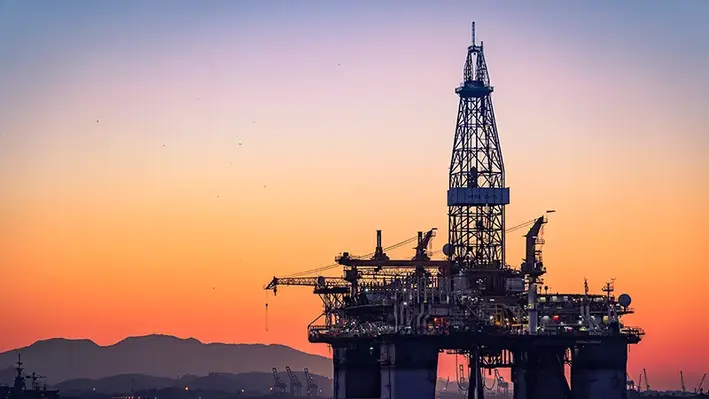
 Europe’s offshore oil and gas sector is witnessing a wave of technological advancements in subsea production and well intervention. From all-electric subsea systems to automated clamp installations, operators and technology firms are driving efficiency, safety, and energy resilience across the continent’s offshore fields.
Europe’s offshore oil and gas sector is witnessing a wave of technological advancements in subsea production and well intervention. From all-electric subsea systems to automated clamp installations, operators and technology firms are driving efficiency, safety, and energy resilience across the continent’s offshore fields.
Subsea7 Sakarya Phase 3 Contract
Subsea7 has secured a major contract with Turkish Petroleum Offshore Technology Centre (TP-OTC) for Phase 3 of the Sakarya field in the Black Sea. The EPCI scope covers subsea umbilicals, risers, and flowlines, with execution managed from Subsea7’s Istanbul office. David Bertin, Senior Vice President, highlighted the award as strengthening Subsea7’s track record in Türkiye while reinforcing its role in supporting the country’s strategic energy goals. Türkiye Business Unit Director, Hulya Ozgur, further emphasized the project’s contribution to energy independence and local content development.
SLB OneSubsea All-Electric Breakthrough
SLB’s OneSubsea joint venture with Equinor has been awarded an EPC contract for a 12-well, all-electric subsea production system at the Fram Sør field offshore Norway. The development, executed as a tieback to the Troll C platform, will minimize topside modifications while significantly lowering emissions. SLB OneSubsea CEO, Mads Hjelmeland, described it as “the first large-scale all-electric subsea production system,” unlocking future tieback opportunities and enabling more marginal resource development on the Norwegian Continental Shelf.
Ace Well Technology’s Automated Clamp Success
Ace Well Technology, with partners Expro and Archer, has completed the first offshore deployment of its Ace Control Line Clamp (ACLC) using Expro’s Remote Clamp Installation System (RCIS) on the Norwegian Continental Shelf. Built on Ace’s proven ratchet technology, the system achieved installation speeds of 15–16 joints per hour with consistent precision. Technology manager Anbjørn Kaurstad highlighted its ability to reduce red zone exposure, while Archer’s Bjørn Christensen praised its contribution to safety and operational consistency.
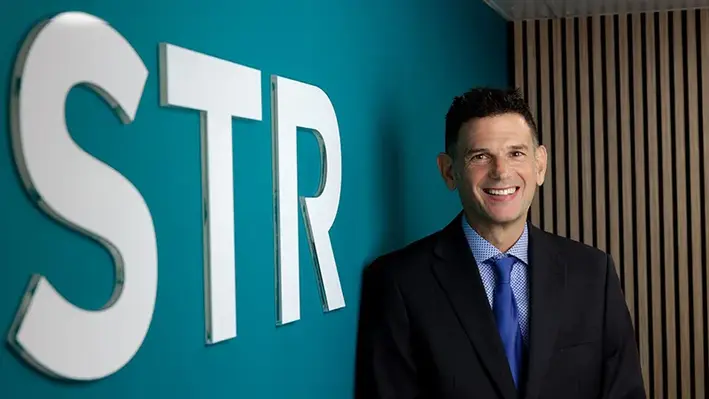
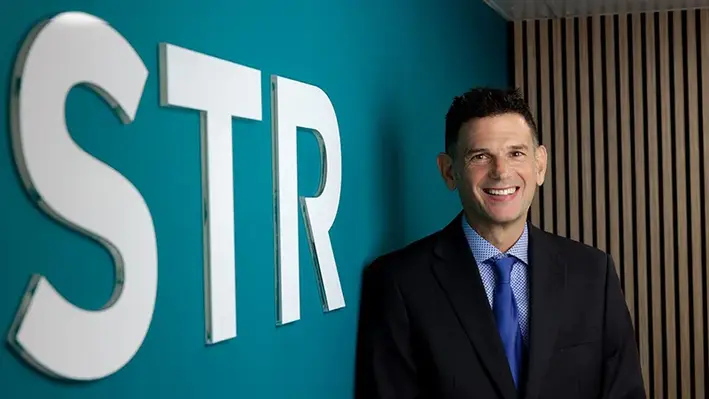 With a special focus for expansion across Africa and Europe, Subsea Technology & Rentals has made a fresh appointment of a regional director to address strategic growth and full field development experience
With a special focus for expansion across Africa and Europe, Subsea Technology & Rentals has made a fresh appointment of a regional director to address strategic growth and full field development experience
Operations in these regions will be managed out of Aberdeen, spearheaded by James Christie, who has been with Ashtead Technology previously, bringing in more than 25 years of industry experience. Christie has also spent more than 10 years of his career with Subsea7 in operational roles.
“James joins us at a hugely exciting time for STR as we continue to grow at pace, diversify our product and service offering and enter new markets. Meeting evolving customer demand remains central to our strategy, with more clients choosing to collaborate with us on new product development programmes, partnering with us beyond traditional rental models.
“James brings a highly strategic approach to growth and full field development experience spanning operations, inspection, and maintenance to decommissioning, which will support our ambition to diversify and strengthen our service offering to our customers,” said Steve Steele, CEO of STR.
Christie's impressive track record of developing strong client relationships and technical prowess will significantly add to STR's consistent market presence with more than US$10mn investments in technology and innovation, and atleast two product launches annually.
“I am thrilled to be joining STR at such a pivotal time as the business has become firmly recognised as a subsea technology leader and continues to invest, creating value for customers and bringing new challenger products to market. I look forward to further strengthening customer partnerships, supporting the growth ambition, and enhancing our focus and footprint across key global regions,” said Christie.
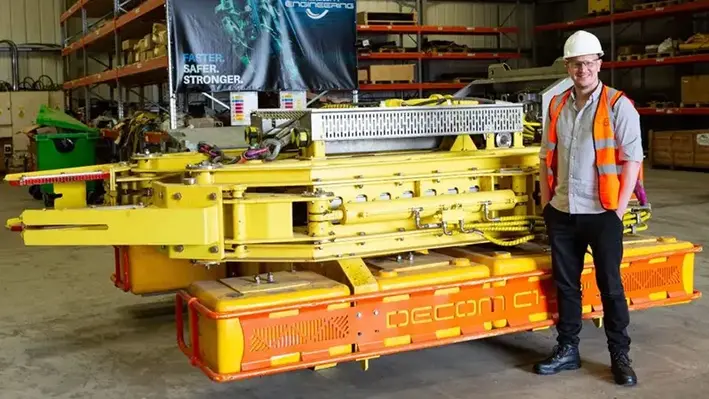
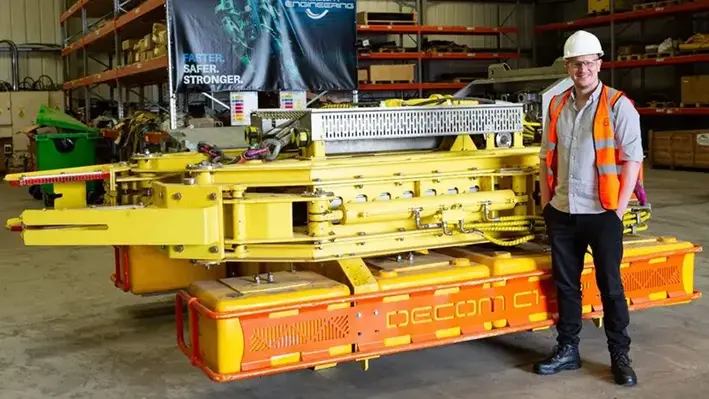 Not long after Decom Engineering secured work in Australia’s nascent decommissioning sector, the UK-based company has appointed Nick McNally as its new Managing Director to steer its global growth ambitions.
Not long after Decom Engineering secured work in Australia’s nascent decommissioning sector, the UK-based company has appointed Nick McNally as its new Managing Director to steer its global growth ambitions.
The appointment was announced on the website of the Centre of Decommissioning Australia, or CODA, reflecting its significance to the nation’s decommissioning efforts.
“This is an exciting new stage for Decom as the business evolves from a highly respected niche engineering firm into a globally recognised technology partner,” said McNally in a statement.
“With new markets opening up, and recent contract wins in Australia, Brazil and the Gulf of Mexico, the opportunities ahead are considerable and my focus will be on building the infrastructure, capability and culture to meet that growth head-on.”
McNally, who has served as Decom’s Commercial Director since 2019, takes up his new role at a key time for the company as it steps up international expansion and technological innovation in the decommissioning sector.
His appointment reflects the Aberdeen-based company’s strategic focus on scaling operations, expanding into new markets, and strengthening its position as a leading provider of patented cutting technologies to the global energy industry.
Under his leadership, Decom succeeded in rolling out a new ultra-light chopsaw with improved cutting performance, which has seen the C1-16UL deployed across complex subsea projects in various challenging offshore environments.
The company has been buoyed by recent project wins in Australia.
Last year, it executed three market-entry Australian contracts to strengthen its position within the Asia Pacific region, including the deployment of its chopsaw cutting technologies on behalf of a major operator in the Bass Strait alongside two other clients in Australian waters.
Together, the contracts amounted to more than UK£500,000.
Decom is now actively progressing ISO certification alongside additional IP coverage and is looking to expand its workforce from 16 to over 25 staff within the next 18 months, with new roles across engineering, operations and business development.
“With international demand growing and increasing interest in our cutting technology, we’re focused on scaling responsibly, strengthening our systems, investing in our people and remaining agile, which enables us to move into new markets such as offshore wind and onshore decommissioning,” said McNally.
As well as the Australian market, the company is also chasing emerging business opportunities in North America, with demonstration events planned for the United States later this year as it evaluates potential partnerships and future growth.
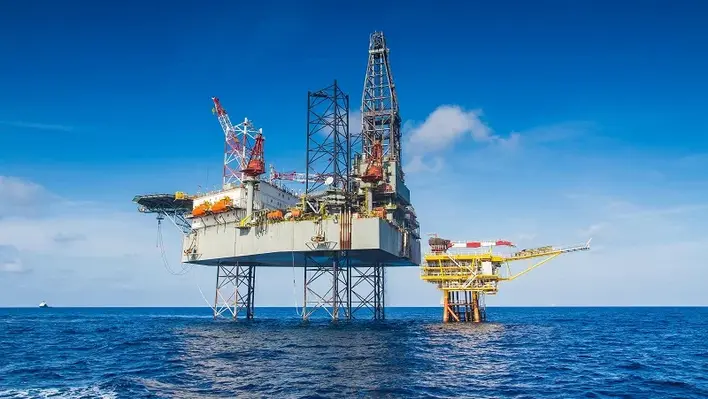
 TechnipFMC has been awarded two subsea contracts by Petrobras for flexible pipe to be deployed in the Campos and Santos basins.
TechnipFMC has been awarded two subsea contracts by Petrobras for flexible pipe to be deployed in the Campos and Santos basins.
The first award is a substantial contract thought to be worth between US$250mn and US$500mn to design, engineer, and manufacture flexible gas injection risers. This high-technology solution will sustain reservoir pressure and enhance production efficiency through high-capacity gas reinjection in pre-salt formations in the Santos Basin.
The second award, which followed a competitive tender, is a ‘significant’ (US$75mn-US$250mn) contract to design, engineer, and manufacture flexible risers and flowlines for deployment on assets in the Campos Basin.
Jonathan Landes, president, Subsea at TechnipFMC, commented, “As Petrobras unlocks Brazil’s energy resources, we are proud to provide technology and expertise that support some of their most technically challenging projects. TechnipFMC is a subsea innovation leader and continues to advance flexible technology to support new projects and enhance value for its clients.”
Manufacturing will be carried out at TechnipFMC’s flexibles manufacturing facility in Açu, Brazil.
TechnipFMC has been involved in Brazil for nearly 70 years, and has extensive in-country operations, delivering advanced technological solutions while supporting the development of local economies.
In March, the company was awarded a major integrated Engineering, Procurement, Construction, and Installation (iEPCI) contract by Shell worth more than US$1bn for its Gato do Mato greenfield development offshore Brazil, utilising Subsea 2.0 configure-to-order (CTO) subsea production systems.
In September 2024, TechnipFMC was awarded two subsea contracts by Petrobras for the pre-salt fields offshore Brazil, the first todesign, engineer, and manufacture riser flexible pipe and the second to design, engineer, and manufacture subsea production systems to be deployed on the Atapu 2, Sepia 2, and Roncador projects.
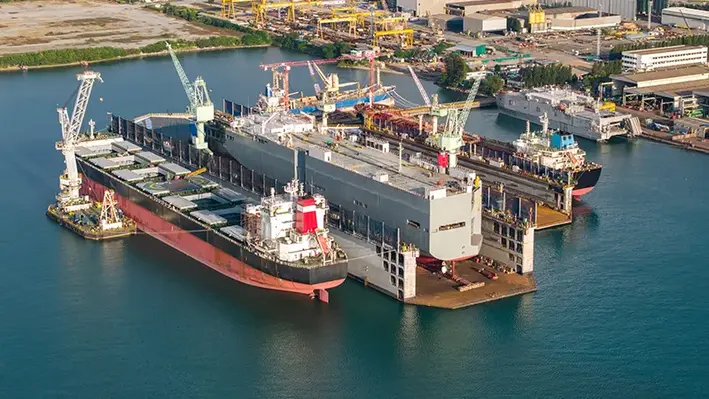
 EnerMech has been awarded a two-year extension to its existing contract with Dubai Petroleum, continuing its role in delivering crane maintenance services across the operator’s offshore assets in the Middle East.
EnerMech has been awarded a two-year extension to its existing contract with Dubai Petroleum, continuing its role in delivering crane maintenance services across the operator’s offshore assets in the Middle East.
The original agreement, which began in 2022, included an optional extension clause that Dubai Petroleum has now activated. Under this renewed commitment, EnerMech will carry on providing both planned and corrective maintenance, deploying dedicated personnel across multiple offshore locations.
The extended scope also involves additional on-call services, as well as onshore repair and refurbishment of crane components. This includes sourcing spare parts and offering engineering upgrades for outdated or obsolete equipment—ensuring ongoing operational safety and efficiency.
The United Arab Emirates and the broader Middle East remain a key strategic focus for EnerMech. The company has significantly strengthened its footprint in the region through a number of recent contract wins, all aligned with its long-term goal of expanding services to local energy sector clients.
“We are ambitious in our aims in the Middle East and the extension of this contract is material evidence of the fine work that our regional team has undertaken for Dubai Petroleum over the initial phase of work.
“Our lifting solutions service line personnel are renowned for delivering safe, efficient operations which provide our customers with industry leading capabilities and I commend them for achieving this strategically important extension,” said Charles ‘Chuck’ Davison Jr., EnerMech CEO.
The extension reflects both Dubai Petroleum’s confidence in EnerMech’s capabilities and the company's growing reputation for delivering safe, high-performance lifting solutions. With a focus on quality service, safety, and technical expertise, EnerMech continues to build strong partnerships within the offshore energy sector.
As the region pushes forward with infrastructure upgrades and asset integrity improvements, EnerMech’s continued presence positions it as a trusted service provider supporting critical offshore operations in the Gulf.
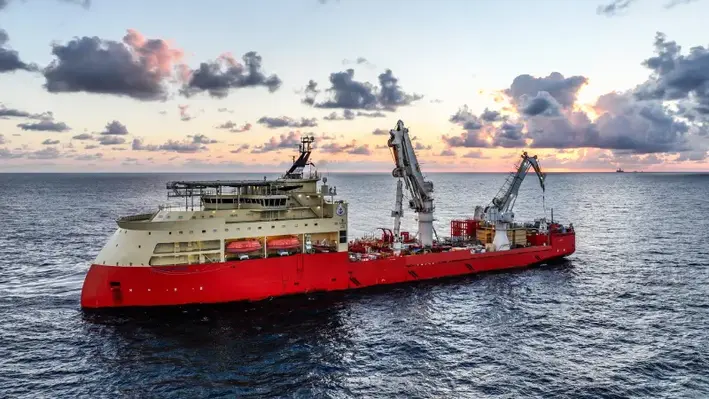
 C-Innovation has completed the decommissioning of the Joliet tension leg platform (TLP) in the Gulf of America.
C-Innovation has completed the decommissioning of the Joliet tension leg platform (TLP) in the Gulf of America.
Joliet was the oldest TLP installed in the Gulf (since 1989) in 1,725ft of water. The decommissioning contract involved the MSV Island Venture, along with its ROVs, cranes and back deck support services.
Island Venture was responsible for cutting the two 8 inch and 10 inch flexible risers which were then abandoned in a pre-determined area of the sea floor.
Additionally, the scope included the detaching of 12 mooring tendons from the Joliet TLP. The tendons, each measuring over 1,700ft long, were cut into 305 separate sections aboard the Island Venture and transferred to an OSV to transport to shore.
George Wilson, Project Manager at C-Innovation, said, “The C-Innovation team executed the project safely and efficiently, competing it ahead of schedule without any accidents or incidents. Our success was driven by strong offshore leadership, careful planning, a focus on safety and the lift capacity of the Island Venture crane.
“The original agreement was for 26 days with extension options, which were exercised, bringing the total to 36 days. The contract was signed on 15 January, 2025, work began on 2 May, and the project was successfully completed on 3 June, 2025.”
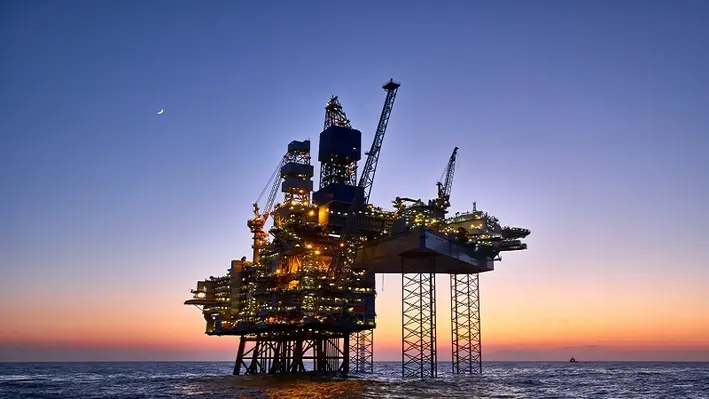
 A well operations management plan and multidisciplinary collaboration have been critical success factors in ensuring Exxon Mobil's Bass Strait decommissioning project is carried out safely , efficiently and in compliance with regulatory requirements,
A well operations management plan and multidisciplinary collaboration have been critical success factors in ensuring Exxon Mobil's Bass Strait decommissioning project is carried out safely , efficiently and in compliance with regulatory requirements,
In an article on the Exxon Mobil website, Project Manager Richard Perry talks about how Exxon Mobil is executing the largest offshore decommissioning project in its global history in Bass Strait.
ExxonMobil’s wells team is permanently and safely plugging and abandoning hundreds of wells in Bass Strait, as it retires infrastructure that has reached the end of its productive life. To date, the company has safely plugged and abandoned over 200 offshore wells, using specialised equipment to install cement plugs at depths equivalent to a 20-storey building. These plugs undergo rigorous pressure testing to ensure long-term integrity and environmental protection.
“To guide this work, our team developed a first-of-its-kind Well Operations Management Plan, ensuring all plug and abandonment activities meet strict regulatory requirements and adhere to the highest safety standards,” Parry explains. “This plan draws on ExxonMobil’s global experience managing successful decommissioning campaigns in Canada, the United States, and the North Sea, while also incorporating innovative practices that improve both efficiency and environmental outcomes.
“Our Bass Strait well plug and abandonment program is among the largest of its kind globally,” he adds, noting that it relies on close collaboration across a multidisciplinary team—including geoscientists, well integrity engineers, reservoir specialists, regulatory experts, and safety, health and environment professionals—to ensure each well is retired safely, responsibly, and in full compliance with environmental expectations.
Once all wells have been safely plugged and abandoned, each platform is placed in a safe state until it is ready to be removed and safely transported to Barry Beach Marine Terminal for dismantling.
“We remain committed to transparent engagement with our community—keeping stakeholders informed and ensuring our work aligns with local expectations,” Perry concludes.
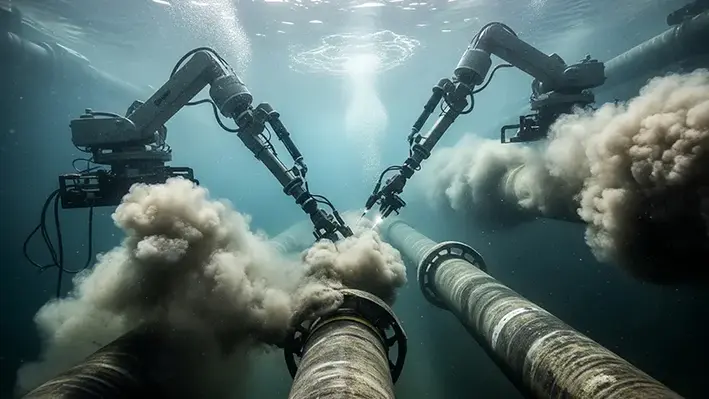
 Oceaneering International, Inc. recently announced that its Brazilian subsidiary, Marine Production Systems do Brasil LTDA (MPS), has secured multiple subsea robotics contracts with Petróleo Brasileiro S.A. (Petrobras). These contracts, awarded during the second quarter of 2025 after a competitive bidding process, are valued at approximately $180 million in total revenue.
Oceaneering International, Inc. recently announced that its Brazilian subsidiary, Marine Production Systems do Brasil LTDA (MPS), has secured multiple subsea robotics contracts with Petróleo Brasileiro S.A. (Petrobras). These contracts, awarded during the second quarter of 2025 after a competitive bidding process, are valued at approximately $180 million in total revenue.
Under these agreements, Oceaneering will supply work-class remotely operated vehicle (ROV) services, specialised tooling packages, and survey support on several anchor handling and ROV support vessels engaged in Petrobras projects off the coast of Brazil. The scope of work covers a wide range of offshore activities, including inspection, maintenance, repair, and decommissioning operations. Additionally, Oceaneering will provide services related to surface and subsea positioning, FPSO hook-ups, mooring inspections, and pile installations.
Each contract is set to last for four years, with options for possible extensions. Work under the contracts is expected to begin at various times throughout the third and fourth quarters of 2025 and continue into the first quarter of 2026.
Martin McDonald, Senior Vice President of Subsea Robotics at Oceaneering, commented: “As a global leader in ROV services, we are excited to further expand our presence in Brazil. These contracts provide visibility into our backlog over the next several years, reinforcing our outlook for resilient offshore energy markets. This visibility also allows us to strategically plan and allocate resources, ensuring safe, consistent, and reliable performance. We are proud to continue our support of Petrobras’ offshore projects and contributions to the development of Brazil’s energy sector.”
Oceaneering has been operating in Brazil for nearly 30 years. Through MPS, the company runs multiple facilities including centres for ROV, survey, subsea intervention tooling, and engineered solutions, along with an Onshore Remote Operations Centre in Macaé. The company also manages an umbilical manufacturing plant located in Niterói.
This press release contains forward-looking statements concerning anticipated revenue, contract durations, commencement dates, and work scopes. These statements are based on current expectations but are subject to risks and uncertainties, such as market conditions and counterparty performance. Actual results may differ materially from those projected. For more details on risks, refer to Oceaneering’s latest filings with the Securities and Exchange Commission.
Oceaneering is a global technology company providing engineered services, products, and robotic solutions to offshore energy, defence, aerospace, and manufacturing sectors.
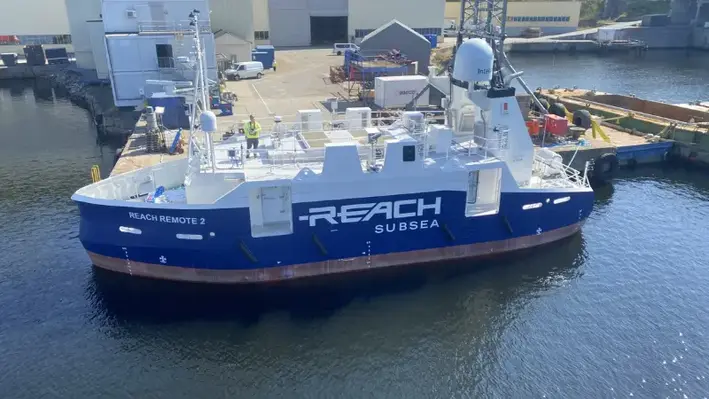
 Reach Subsea’s pioneering Uncrewed Surface Vehicle (USV) in on-route to Australia to deliver subsea services for Woodside Energy.
Reach Subsea’s pioneering Uncrewed Surface Vehicle (USV) in on-route to Australia to deliver subsea services for Woodside Energy.
Reach Remote 2 will perform reservoir monitoring on the Scarborough gas field by utilising the company’s gWatch technology. gWatch, used widely across Norwegian gas fields, measures time-lapse gravity and seafloor deformation to detect small changes in mass and pressure. The precision measurements significantly reduce uncertainty in gas reservoirs and aquifer influx to enhance workflows and support accurate production forecasts.
Reach Remote 2’s operation in Australia will demonstrate the USV’s ability to reduce offshore personnel operational risks, cut costs and reduce environmental impact compared to traditional crewed vessels.
Reach Subsea’s CEO Jostein Alendal said, “Seeing the Reach Remote 2 vessel sail ‘down under’ to deliver world-class services to a company like Woodside Energy is a proud moment for all of us at Reach Subsea. This project clearly demonstrates that the transition to a robotic future is not a vision – it is happening now. We are reducing HSE risks by removing personnel from hazardous environments, reducing operational costs and cutting the carbon footprint of offshore activities by up to 90%.
“It is a major leap forward for the industry and a testament to what innovative technology can achieve.”
The deployment marks the beginning of Reach Subsea’s Inspection, Maintenance and Repair (IMR) operations in Australia, and highlights the company’s expanding global presence.
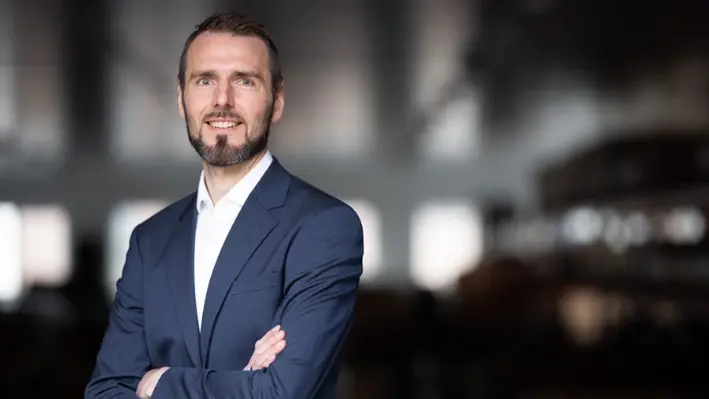

Ace Well Technology, in collaboration with Expro and Archer, has successfully completed the first well deployment of the Ace Control Line Clamp (ACLC) using Expro’s Remote Clamp Installation System (RCIS) on the Norwegian Continental Shelf (NCS). This marks a significant milestone in advancing well completion operations through automation, combining precision engineering and operational efficiency.
“The ACLC was engineered with the objective of maintaining mechanical robustness while enabling remote installation under dynamic rig conditions. By leveraging our proven ratcheting mechanism, we’ve developed a clamp that delivers consistent holding force, precise alignment, and rapid installation - whilst significantly reducing red zone exposure. This first deployment confirms the system’s performance in real-world conditions and validates the design choices that underpin its functionality,” said Anbjørn Kaurstad, technology manager at Ace Well Technology.
The operation was carried out with Archer as the drilling contractor, who welcomed the new system for its operational consistency and technical advantages. “We’re excited to join this breakthrough – hands-free completion enhances safety and efficiency by reducing manual risks and delivering more consistent results. Upholding strong QHSE standards is vital to every project, and this innovation helps us protect our team while improving the quality of our deliveries,” said Bjørn Christensen, One Archer Manager FLX.
Built on Ace’s proven Ace Ratchet Collar (ARC) technology, the ACLC automates control line clamp installation while maintaining reliability under rigorous well conditions. The combined ACLC and RCIS system performed seamlessly during the first deployment, achieving a peak running speed of 15–16 joints per hour. All clamps functioned as designed, with control lines securely fastened throughout the operation and an average installation time of around 50 seconds per joint.
The ACLC concept was initiated in 2020 at the request of Equinor to improve completion operations by integrating automation. Ace Well Technology partnered with Expro to develop the system, combining Ace’s expertise in mechanical downhole solutions with Expro’s remote handling technology. The collaboration culminated in this successful deployment, demonstrating both the technical capabilities and operational efficiency of the system.
The achievement represents a significant step in the evolution of well completion processes, showcasing how automation can streamline installation tasks while maintaining reliability and precision. Interested readers can watch a video demonstration of the RCIS system on YouTube to see the operation in action.
This first deployment of the ACLC with RCIS underlines the growing role of technology-driven solutions in the oil and gas sector, illustrating how engineering innovation can enhance performance, consistency, and operational excellence on the Norwegian Continental Shelf.
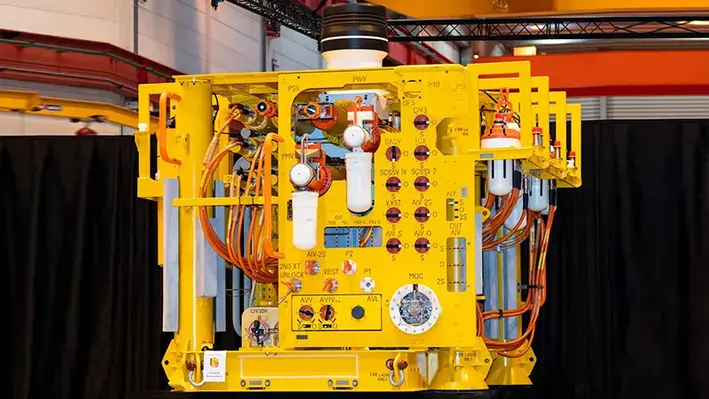

Global energy technology company SLB has announced that its OneSubsea joint venture has secured an engineering, procurement, and construction (EPC) contract from Equinor for a 12-well, all-electric Subsea Production System (SPS) in the Fram Sør field, located offshore Norway.
The contract follows a year-long collaborative Front-End Engineering Design phase during which Equinor and SLB OneSubsea jointly advanced the project. This collaboration resulted in the finalized development plan and final investment decision (FID). Under the EPC scope, SLB OneSubsea will provide four subsea templates and 12 all-electric subsea trees. This eliminates the need for hydraulic fluid supplied from the host platform and minimizes topside modifications, offering a cost-efficient solution while preserving topside capacity for potential future developments in the area.
"Fram Sør is a breakthrough project for our industry, marking the first large-scale all-electric subsea production system," said Mads Hjelmeland, chief executive officer of SLB OneSubsea. "Not only do all-electric subsea solutions significantly reduce topside needs to make large-scale tiebacks such as the Fram Sør development possible, but they also hold the key to unlock more marginal resources through their reduced footprint and simplified operations."
The development will be executed as a subsea tieback to the Troll C host platform in the North Sea, enhancing energy supply security from the Norwegian continental shelf (NCS) to Europe. Since the host platform is powered from the Norwegian mainland, production from Fram Sør will have very low emissions.
The contract remains subject to regulatory approval of the plan for development and operations (PDO).
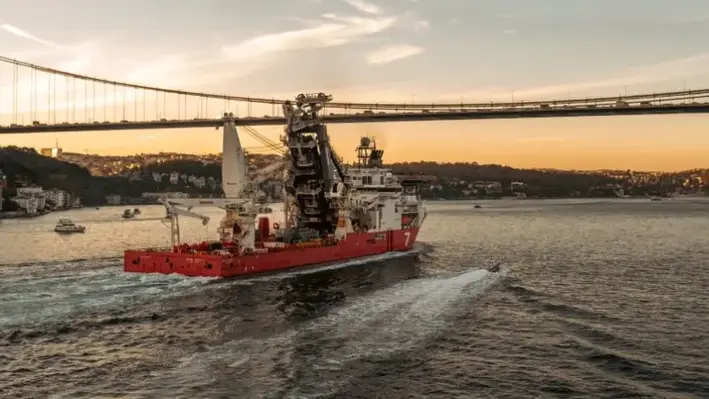
 Subsea7 has secured a major contract with Turkish Petroleum Offshore Technology Centre (TP-OTC) for the development of Phase 3 of the Sakarya field development in the Black Sea.
Subsea7 has secured a major contract with Turkish Petroleum Offshore Technology Centre (TP-OTC) for the development of Phase 3 of the Sakarya field development in the Black Sea.
Subsea7’s scope includes engineering, procurement, construction and installation (EPCI) of the subsea umbilicals, risers and flowlines. Progress will begin immediately and will be managed by the Subsea7 office in Istanbul.
David Bertin, Senior Vice President for Subsea7 Global Projects Centre East, said, “This awards builds on our track record in Türkiye and further reinforces our relationship with TP-OTC, demonstrating Subsea7’s expertise in delivering complex, integrated offshore projects safely and reliably. It underlines our commitment to supporting Türkiye’s strategic energy goals and advancing our strong regional presence.”
Hulya Ozgur, Subsea7’s Türkiye Business Unit Director, commented, “We are proud to continue our journey with TP-OTC on the Sakarya Gas Field Development Project, supporting Türkiye’s vision for energy independence. This new award reflects the dedication and capability of our Türkiye team, our commitment to local content development, and our focus on delivering safe and efficient offshore solutions.”
Page 20 of 118